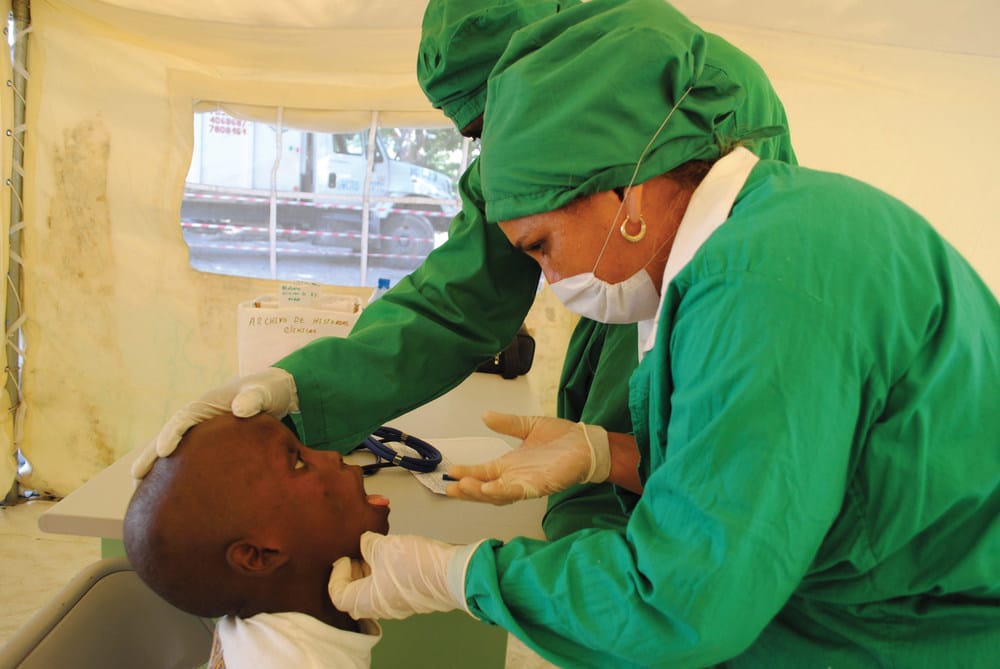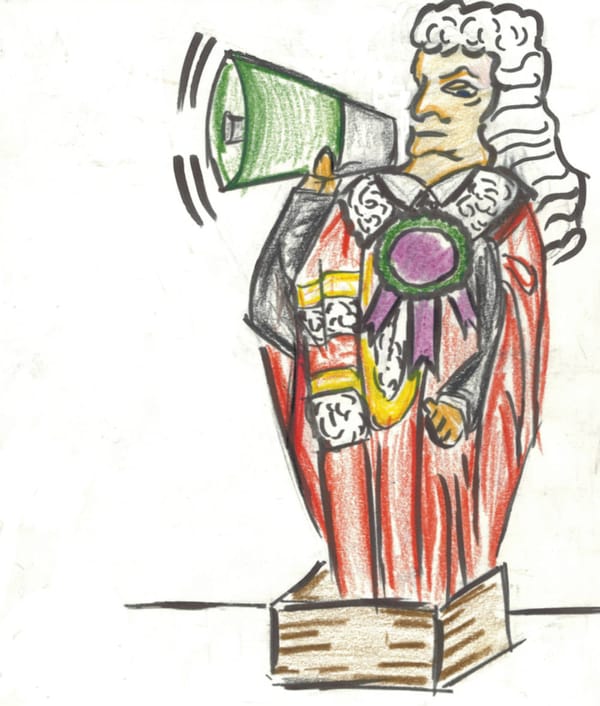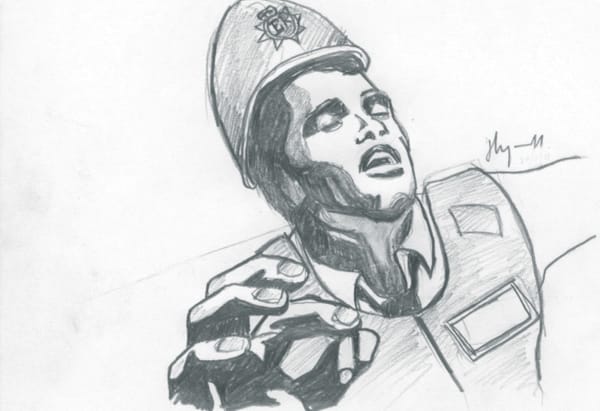Fit as a Fidel
We could learn from Cuba’s international health system

The Cuban healthcare system is renowned for being one of the most effective healthcare systems in the world today with life expectancies equal to those of some of the world’s wealthiest countries. Cubans have for some time been making a push to reach out far beyond their small island borders in order to export their methods of disease prevention and treatment worldwide, particularly in the developing world where their impact is most noticeable.
Cuban medical international, otherwise known as ‘doctor diplomacy’, is a Cuban programme founded after the Cuban Revolution in 1959 that is aimed at exporting Cuban health practices and practitioners to developing nations. Rooted both in foreign policy objectives, including Cuba’s policy of supporting anti-colonial struggles of the 1960s, and humanitarianism, the programme today employs 50,000 healthcare personnel globally.
As one of the first countries to become active in medical crisis operations, Cuba has dispatched emergency assistance teams and medical professionals to provide support to struggling national governments after major natural disasters and conflicts in Chile, Nicaragua, Iran, Algeria and Haiti since the 1960s, often arriving on the scene well before the large NGOs and Charities have mobilised. In 2005 Cuba even prepared to send a brigade of 1,500 doctors to New Orleans in the wake Hurricane Katrina; this offer was declined however by the former US president George Bush.
In 2005 Cuba even prepared to send a brigade of 1,500 doctors to New Orleans in the wake Hurricane Katrina
Humanitarian crises, although devastating when they occur, are rare, which is why, since 1998, the Cuban Comprehensive Health (CPH) programme has formed the cornerstone of Cuban international health operations. This programme has allowed the Cubans to move towards the establishment of durable international healthcare provisions and runs alongside its international emergency relief programme. The CPH aims to promote international solidarity and bolster the public health infrastructure of a country through staffing local clinics and hospitals with Cuban medical teams.
The programme runs in 27 countries in Latin America, Africa and Asia and as a result there are now health workers providing medical care and assistance for some of the most isolated and deprived populations in the world. In fact in several countries such as Honduras, Guatemala and Mali, CPH services have been the only health service provisions available for many rural and indigenous communities for decades.
The Cuban approach combines population based public health principles and preventative programmes with clinical medicine, formulating long-term healthcare initiatives and taking these directly to the populations where it’s needed. Since its foundation, the CPH is estimated to have sent 3,446 health professionals to participating countries. These personnel have carried out over 96 million patient visits, saved 1.8 million lives in the poorest parts of the world and greatly improved the quality of life of many more. This level of provision is what many large international health development programmes can only dream of achieving.
The price of such success is, however, high to the individual practitioners who are deployed internationally, and the question remains whether such efforts are sustainable and scalable to reach more people. Availability of funding and resources however presents the largest obstacle to the CPH. These programmes are implemented in the most deprived countries in the world and consequently the facilities available to Cuban healthcare professionals are often poor, with frequent absences of essential drugs and clinical equipment. These problems have been minimised by increased efficiency, improved logistics and informed human resource management but there is no denying that there continues to be an absolute need for additional funding that cannot be generated by the deprived populations served.
Unlike the usual aid and development programmes implemented by developed countries and large NGOs, which require significant investment and are largely vertical, running parallel to existing health facilities the Cuban approach of integrating health provision and strengthening existing systems has been the key to its success. Traditional health development programmes are often additionally limited by political alliance and ideology. Cuban programmes work in complete cooperation with the poorest countries embracing ideas of international fraternity and disregarding political agendas and economic interest. The question now is how do they begin to convince the rest of the global health community to implement such methods?
The “Developing Health Systems” conference will take place on 26th March at 9.30 in the Business School, comparing Cuba, the UK and others. More information at tickets available at www.imperialcollegeunion.org/medsin









